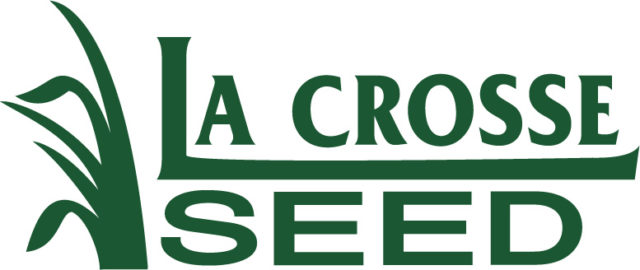With alfalfa, it isn’t a spray, spray, spray thing; it is used early on to help establish the crops and then let fill in and out-compete the rest of the weeds that could come up. With that kind of a start, we can probably extend the stand another year or two on the back side.”
Brad Moos
Eaton, Colorado

“I come from an area where everyone around us gets to use Roundup Ready corn and soy, so having it for hay would be great. It would be nice to be able to keep the weeds down and have the hay our dairy customers want.
We also have a chance to get horse customers from Florida, so it would just be another way to have weed-free hay for everyone who wants it.”
Tyler Brown
Gillespie, Illinois

“I think that Roundup Ready alfalfa coming back would be good because it gives you another way to clean up your crops. In my own situation, I don’t know if I will personally be using it, but for the industry, I think it is a good thing.
If I do end up using it, it would just be in a small percentage of our acres because most of our feed can go to feedlots where grass mixed with alfalfa is okay for our customers.”
Jeoffrey Tammen
Albert, Kansas

“Deregulation is bad, because any Tom, Dick, or Harry can grow alfalfa, and as it has happened with corn and soy, we are going to end up with more crops than we can sell.
In order to have a good market, you have to have a bigger demand than supply. It is pretty idealistic; everyone dreams of having no weeds in their hay, but it will hurt the boys who already produce quality hay by flooding the market with more.”
Ron Nelssen
Inavale, Nebraska

“I think it would be great to get it back. It would definitely decrease the cost of weed control and make it a lot easier to get things started.
I haven’t had the chance to use it yet, and we ended up putting in around 200 acres last year that I really wanted to have it for, but we just couldn’t wait. It will be nice to have it as part of the mix as soon as we can get it.”
Justin Frick
LaCross, Kansas

“I think that it needs to be approved. As far as on our farm, in select fields where we do have weed issues that we can control under normal circumstances, I would like to use it in that area.
Outside of that, I think we would stick with regular alfalfa. I think if we want better genetics, we need to pass this first to open the pathway for everything else.”
Austin Nokes
Albert, Kansas

"I think it would be good for the industry. I think this is something I would like to use as soon as it becomes available because having another tool would be great when it is needed.”
Bill Baum
Tecumseh, Nebraska
“This spring when we seed, we’re not going to be able to use Roundup, so we are going to have to use other herbicides. They’re costly, they stunt the alfalfa and we still have a weed problem.
So my first cutting of alfalfa is probably going to end up going to a beef producer who will grind it up and mix it with other ingredients. It’s not going to be top quality. It is going to probably cost me about $100 an acre just in lost production with that first cutting.
“Now I understand there are concerns about Roundup Ready alfalfa getting mixed up with other alfalfa, but most growers cut their alfalfa in the bud stage or early bloom, and I really don’t know of any producers who let it go to seed.
I have talked with all of our customers and asked if there is a preference to Roundup Ready or not Roundup Ready and they have said they don’t care as long as the hay is weed-free.”
Jerry Ackerma
Lakefield, Minnesota










